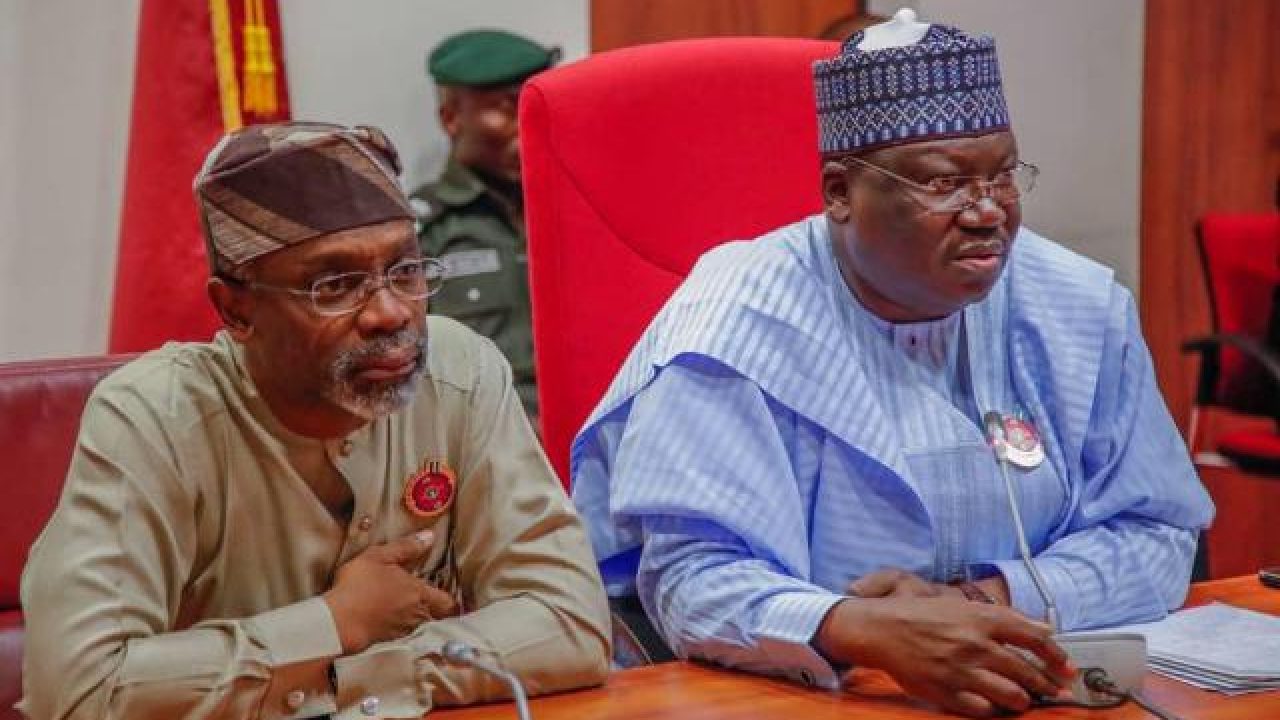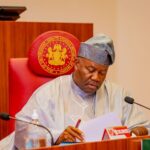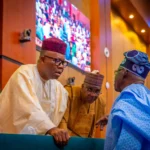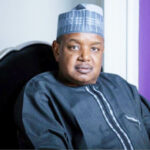The National Assembly will, on Tuesday, resume from its two-month annual recess it embarked on in July.
Before the break, the legislators passed a number of bills and resolutions after considering committees’ reports on some key national issues, confirmed dozens of presidential nominees for appointment into key government offices and carried out investigative hearings on the activities of some federal government agencies.
- National Assembly bureaucracy rescue mission: Matters arising
- Buhari to send oil reform bill to NASS
Our correspondents look at issues that are expected to dominate debate in both chambers of the National Assembly upon resumption.
Constitution review
The Senate adhoc committee on the review of 1999 constitution has formally commenced the process of further amending the nation’s law and had called for the submission of memoranda from Nigerian public on various issues currently agitating the polity with a view to making changes in the constitution.
Daily Trust on Sunday gathered that the committee had received over 60 memoranda, seeking to alter provisions of the constitution.
The Red Chamber had also referred dozens of constitutional amendment bills to the committee for further legislative work. The panel, according to its chair and Deputy Senate President, Ovie Omo-Agege, had pledged that it would not kill any of the bills and proposals before it.
In the House of Representatives, there are also dozens of bills seeking to alter constitutional provisions before the Constitution Review Committee headed by the Deputy Speaker of the House, Ahmed Idris Wase.
The Speaker, Femi Gbajabiamila, had said that the House committee would start work as soon members return from the recess.
While the committees in both chambers are expected to swing into action on the proposals immediately after resumption, Nigerians are watching keenly whether the exercise will end up as another jamboree as some critics have described it.
Electoral reform
The ninth National Assembly listed electoral reform in its legislative agenda. Analysts said the reform of the country’s electoral process is long overdue and must be carried out with a view to meeting the expectations of Nigerians.
The amendment carried out by the 8th National Assembly was declined presidential assent.
Before the recess, the Senate President Ahmad Lawan urged the Senate Committee on INEC, chaired by Senator Kabir Gaya, to expedite work on the electoral reform.
Senator Gaya had said that his panel was in the process of amending the Electoral Act and in the process of enacting the Electoral Offences Act which would enable perpetrators of election violence to be prosecuted.
More than a year into the life of the ninth Assembly, Nigerians are still waiting if this reform will not suffer the same fate as the previous one.
Petroleum Industry Bill (PIB)
From 2007 to date, PIB has defied passage and assent. But the present National Assembly had vowed to get it passed and assented to.
The Senate President, Ahmad Lawan had hinted that the bill would be submitted to the National Assembly when it resumes this week.
Lawan had asked the Committees on Petroleum (Upstream and Downstream); and Gas to use the recess to engage the Executive arm of Government, particularly the Nigerian National Petroleum Corporation (NNPC) and Department of Petroleum Resources (DPR), on the bill.
He said such engagement was to reduce the time needed to carry out legislative work on the bill.
“We want to break the jinx that has visited the PIB,” Lawan had said.
Th oil reform bill is also expected to be given serious legislative attention when transmitted to the legislature.
2021 budget proposal
Another priority issue awaiting the Senate’s attention is the report of its joint committees on 2021-2023 Median Term Expenditure Framework and Fiscal Strategy Paper (MTEF/FSP).
The Red Chamber had asked President Muhammadu Buhari to ensure the submission of the 2021 national budget before the end of September this year.
The final draft of the budget would be prepared based on the parameters and fiscal assumptions of the approved 2021-2023 MTEF/FSP.
Lawan said the early submission was to enable the legislature enough time to consider the budget estimates and get it passed before the end of December to ensure that the January-December budget circle is maintained.
The Senate committees on Finance and National Planning, during the break, held a public hearing on MTEF/FSP during which they interfaced with revenue-generating agencies of government.
The panel expressed disappointment with their poor revenue profile, huge wage bill and poor remittances to the Consolidated Revenue account.
The Chairman of the joint committee, Senator Solomon Adeola, in a closing remarks, hinted that some of the agencies would be barred from receiving allocation from the federation account and be responsible for their overheads and salaries of their workers.
He said the Senate would work out an arrangement to amend the Fiscal Responsibility Act that would stop the agencies from spending the money they generate as they pleased.
The panel’s report is expected to be given accelerated consideration in view of its significance to the national budget.
Water Resources Bill
The reintroduction of Water Resources Bill 2020 in the House of Representatives had been generating criticism from some quarters.
The Executive bill was first presented in 2017 to the 8th National Assembly but did not scale through due to the controversy that trailed it.
The bill, which seeks to put the control of water bodies stretching more than one state in the hand of federal government, had passed second reading in the House.
Opposition lawmakers in both Chambers of the National Assembly had also vowed to resist any plot to get the bill passed.
The Nigerian Labour Congress (NLC) and regional groups from both the South and the Middle-Belt have also raised their voices against the bill.
But the federal government had vowed not to backtrack, saying many of those condemning the bill either had not read it or understood its provisions.
The bill, after resumption, will be subjected to a public hearing by the House Committee on Water Resources as disclosed by the House Leader, Alhassan Ado Doguwa.
Whether the bill will scale through or suffer the same fate as the previous one, time will tell.
NDDC probe
The most prominent among the probes carried out by the National Assembly this year is the one on the alleged financial malfeasance in the Niger Delta Development Commission (NDDC).
The Senate, after its investigation, recommended the immediate dissolution of NDDC’s Interim Management Committee and the return of all monies spent outside budgetary provision. The House of Representatives is yet to consider its committee report on the probe.
The Olubunmi Tunji-Ojo led committee had submitted its report before the House went on recess. It is expected to be among the priority reports the House will consider after resumption in view of the twist and turns that greeted the exercise.
CAMA
Another controversial issue that may also confront the National Assembly is the Company and Allied Matters Act (CAMA), which aims to regulate the financial affairs of corporate entities in the country.
Although the House had already ruled out any action on CAMA after passage and presidential assent, oppositions to it had maintained their call on the National Assembly to stop its implementation.
The House Leader, Alhassan Ado Doguwa had, in a recent interview, disclosed that the CAMA is a done deal which can only be touched through amendment when there is the need, not because of the agitations of people who have been given the chance to make an input on the Bill but chose not to.
Probes without resolutions
Recently, House Speaker Femi Gbajabiamila had expressed displeasure over some investigative hearings being conducted by some committees without backing by House resolutions.
According to him, some of these probes were carried out without the knowledge of the leadership of the National Assembly.
“That is a conflict in our procedure,” Gbajabiamila had told State House correspondents last month, while responding to question on why the House suspended all probe hearings during recess.
This issue is expected to dominate debate in the House after resumption, with a view to carry out reform on adherence to House resolutions.
Fuel price, electricity tariff hikes
Recently, the federal government had implemented some policies, which many argued require the federal legislators’ intervention because of their direct impact on ordinary citizens.
Some critics went further to deplore the studied silence of the National Assembly on the increases of electricity tariff and fuel pump price at a time millions of Nigerians are still feeling the economic fallout of COVID-19 pandemic.
The hikes are most likely to be raised given that the Red Chamber, after considering the report of its committee on power, had resolved that the Cost reflective Tariffs Principle be reviewed and revisited to ensure that the Electricity Distribution Companies (DISCOs) pay for the full amount of power they receive from the Nigerian Bulk Electricity Trading Plc (NBET).
What Nigerians want from lawmakers – CSOs
In addition to the above, various civil society groups have also highlighted some key issues that National Assembly should focus on when it resumes.
They want the National Assembly to dig deep into the utilisation of COVID-19 fund by presidential taskforce, school feeding during lockdown by humanitarian ministry, all assets recovered by the anti-graft agencies, as well as concrete action on PIB, Proceed of Crime bill, Economic Stimulus bill, Electoral Reform and electricity tariff and fuel price hikes.
“We need explanation on how all the funds borrowed and donated by Nigerians to fight COVID-19 are being utilized,” said Auwal Musa Rafsanjani, the Executive Director, Civil Society Legislative Advocacy Centre, CISLAC.
On electoral reform, he said “Nigerians won’t have confidence on a system that is outdated and does not reflect people’s will”, urging the nation’s apex legislative body to expedite work on the reform.
In view of the reactions that trailed CAMA, Mr Clement Nwankwo, the Executive Director of Policy and Legal Advocacy Centre (PLAC), urged the federal lawmakers to consider amending the Act. “NGO’s are very worried about some sections of the Act,” he said.
“The House of Representatives has to revisit the NDDC scandal,” said Hamzat Lawan, the founder and Chief Executive Officer (CEO), Connected Development (CODE).
“The report has not yet been made public. We have seen what transpired on television which was very shameful,” he added.
He also asked the National Assembly to engage the Executive on the electricity tariff and fuel price hikes.
“There is no justification for the increase especially at a time when Nigerians are feeling the effect of the COVID-19 pandemic,” he said.

 Join Daily Trust WhatsApp Community For Quick Access To News and Happenings Around You.
Join Daily Trust WhatsApp Community For Quick Access To News and Happenings Around You.


